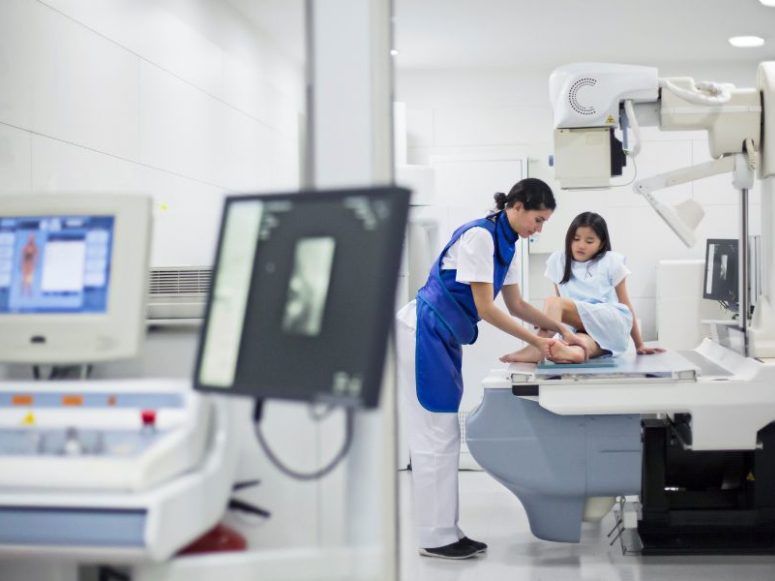Key Points
- Board-certified physicians and accredited facilities ensure quality care - look for urgent care centers with emergency medicine or family medicine certified doctors and Joint Commission accreditation.
- Service capabilities vary significantly between centers - verify on-site X-ray, laboratory testing, and procedure capabilities match your potential healthcare needs before choosing a provider.
- Insurance network participation can save 60-80% on costs - always confirm your chosen urgent care center accepts your insurance plan to avoid unexpected out-of-network charges.
Choosing the right urgent care center is crucial for receiving quality medical care when you need it most. With the rapid growth of urgent care facilities, patients now have multiple options, making it important to understand how to evaluate and select the best center for your healthcare needs.
The right urgent care center should provide convenient access to quality medical care while accepting your insurance and offering the services you're most likely to need. Making an informed choice before you need urgent care ensures you'll receive appropriate treatment without delays or unexpected costs.
Evaluating Medical Quality and Credentials
Physician Qualifications
The most important factor in choosing an urgent care center is the quality of medical staff. Look for centers staffed by board-certified physicians in emergency medicine, family medicine, or internal medicine. These certifications ensure providers have appropriate training for urgent care situations.
Verify that the center employs physicians rather than relying solely on nurse practitioners or physician assistants. While these providers offer valuable care, having physicians available ensures access to the highest level of medical expertise when needed.
Facility Accreditation
Choose urgent care centers accredited by recognized organizations such as the Joint Commission or the Accreditation Association for Ambulatory Health Care (AAAHC). These accreditations indicate the facility meets rigorous quality and safety standards.
Accredited facilities undergo regular inspections and must demonstrate compliance with evidence-based care protocols, patient safety measures, and quality improvement initiatives.
Hospital Affiliations
Urgent care centers affiliated with reputable hospitals often provide higher quality care and better coordination when referrals or transfers are needed. Hospital affiliations also indicate established relationships with specialists and advanced care facilities.
These affiliations can be particularly valuable if you need follow-up care or specialist referrals, as the urgent care center can facilitate seamless transitions within the healthcare system.
Assessing Service Capabilities
Diagnostic Services
Verify that your chosen urgent care center offers on-site diagnostic services including X-rays, laboratory testing, and EKG capabilities. These services enable comprehensive evaluation and immediate treatment without requiring additional appointments or referrals.
Centers with comprehensive diagnostic capabilities can handle a wider range of conditions and provide more definitive care during your visit, reducing the need for follow-up appointments or emergency room transfers.
Treatment Capabilities
Evaluate the center's ability to handle procedures you might need, such as wound care, suturing, splinting, and minor surgical procedures. Centers with broader treatment capabilities can provide more comprehensive care for urgent medical needs.
Ask about the center's protocols for handling conditions that exceed their capabilities, including transfer arrangements and specialist referral processes.
Occupational Health Services
If you need workers' compensation care or occupational health services, verify that the urgent care center has experience with these specialized requirements and accepts workers' compensation insurance.
Insurance and Financial Considerations
Network Participation
Confirm that your chosen urgent care center participates in your insurance network before you need care. In-network providers typically cost 60-80% less than out-of-network facilities, representing significant potential savings.
Contact your insurance company or check their website to verify insurance network participation, as this information can change and may not always be current on the urgent care center's website.
Transparent Pricing
Choose centers that provide clear, upfront pricing information for common services. Transparent pricing helps you understand costs and avoid surprise billing, particularly important if you're paying out-of-pocket or have a high-deductible plan.
Many quality urgent care centers post their prices online or provide cost estimates over the phone, demonstrating their commitment to transparent, patient-friendly billing practices.
Payment Options
Evaluate the center's payment policies, including accepted payment methods, payment plans, and financial assistance programs. Centers that offer flexible payment options demonstrate commitment to accessible healthcare.
Location and Convenience Factors
Accessibility and Hours
Choose an urgent care center with convenient location and hours that meet your needs. Consider factors such as proximity to your home or workplace, parking availability, and public transportation access.
Extended hours, including evenings and weekends, provide valuable access when your primary care physician isn't available. Some centers offer 24/7 service, providing emergency room alternatives.
Wait Times and Efficiency
Research typical wait times and patient flow efficiency at different urgent care centers. Many centers provide real-time wait time information online or through mobile apps, helping you plan your visit.
Centers that offer online check-in, appointment scheduling, or text message updates demonstrate commitment to patient convenience and efficient service delivery.
Technology Integration
Modern urgent care centers offer patient portals, online check-in systems, and electronic health record integration with other healthcare providers. These technological capabilities improve convenience and care coordination.
Reputation and Patient Experience
Online Reviews and Ratings
Research patient reviews and ratings on multiple platforms including Google, Yelp, and healthcare-specific review sites. Look for patterns in feedback regarding wait times, staff courtesy, facility cleanliness, and overall patient satisfaction.
Pay attention to how the center responds to negative reviews, as this indicates their commitment to patient satisfaction and continuous improvement.
Word-of-Mouth Recommendations
Ask friends, family members, and your primary care physician for recommendations based on their experiences with local urgent care centers. Personal recommendations often provide valuable insights into quality and patient experience.
Healthcare professionals can provide particularly valuable perspectives on the quality of care and professional reputation of different urgent care centers in your area.
Community Involvement
Centers that participate in community health initiatives, sponsor local events, or provide health education demonstrate commitment to community wellness beyond just treating illness and injury.
Specialized Services and Populations
Pediatric Care
If you have children, verify that the urgent care center provides pediatric services and has staff experienced in treating children. Some centers specialize in family care, while others focus primarily on adult patients.
Pediatric-friendly centers typically have appropriate equipment, child-friendly environments, and staff trained in pediatric urgent care protocols.
Chronic Disease Management
For patients with chronic conditions, choose centers that can provide appropriate care for your specific health needs and coordinate with your primary care physician for ongoing chronic care management.
Making Your Final Decision
Visit Before You Need Care
Consider visiting potential urgent care centers before you need medical care to evaluate the facility, meet staff, and understand their processes. This preparation helps you make informed decisions during medical emergencies.
Establish Relationships
Some urgent care centers allow you to establish patient relationships in advance, providing them with your medical history and insurance information for faster service when needed.
Keep Information Accessible
Once you've chosen an urgent care center, keep their contact information, location, and hours easily accessible for when you need urgent medical care.
Conclusion
Choosing the right urgent care center requires careful evaluation of medical quality, service capabilities, insurance participation, and convenience factors. By researching these factors in advance, you can ensure access to quality urgent care when you need it most while minimizing costs and maximizing convenience.
The investment in choosing the right urgent care center pays dividends through better medical outcomes, reduced costs, and improved healthcare experiences. Take time to evaluate your options and select a center that meets your specific needs and preferences for urgent medical care.
References:
[1] Urgent Care Association. "How to Choose an Urgent Care Center." https://urgentcareassociation.org/
[2] Joint Commission. "Ambulatory Health Care Accreditation." https://www.jointcommission.org/accreditation-and-certification/health-care-settings/ambulatory-care/
[3] American Academy of Urgent Care Medicine. "Standards and Guidelines." https://aaucm.org/








